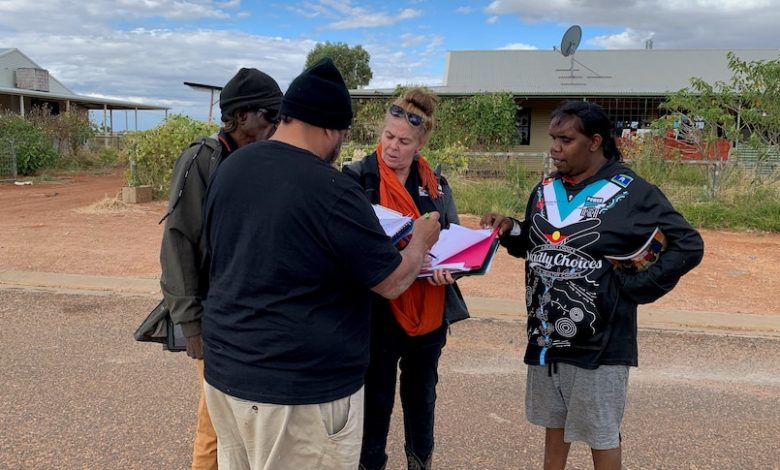WA traditional owners fear proposed heritage law puts sacred sites at risk

sbs– Traditional owners are calling for a redraft of the Western Australian government’s proposed Aboriginal heritage law, which will allow the state government to have the final say on what happens to sacred sites threatened by mining.
A delegation of more than 20 traditional owners representing several cultural groups from across Western Australia gathered at the state’s parliament house on Tuesday, after meeting with WA Minister for Aboriginal Affairs Stephen Dawson.
“He hasn’t given us a commitment, but we are committed (to opposing these laws). We won’t be pushed aside anymore,” Ngadju elder from Norseman Leslie Schultz said.
“When one person in the parliament can make decisions on our sites – that’s wrong. We want to see changes, we want to negotiate those changes.
“We are the traditional owners of that land and of what is beneath the land. We want a seat at the table.”
The need for greater protections for Aboriginal heritage sites came to the fore in May last year, when 46,000-year-old sacred sites at Juukan Gorge, in WA’s Pilbara region, were destroyed by Rio Tinto.
Representatives of the Puutu Kunti Kurrama Pinikura (PKKP) people, the traditional owners of Juukan Gorge, were among those gathered at parliament house on Tuesday.
Despite international condemnation and the resignation of Rio Tinto’s chairman, the demolition was done legally – using an appeals process made possible under the state’s decades-old Aboriginal heritage laws.
The WA Labor government promised to bring in a new set of laws that would replace the existing Aboriginal Heritage Act (1972) and give more power to traditional owners.
But the draft Aboriginal Cultural Heritage Bill, which is yet to be introduced to the parliament, has been criticised for not going far enough, and ultimately leaving the final decision-making power in disputes between traditional owners and mining companies, in the hands of the government minister of the day.
“To be able to give the minister absolute power is a disgrace. There are a number of things we’re concerned about. There is no regulation in the current bill and we believe it needs to go back to the drawing board,” said Dr Anne Poelina, a Nyikina Warrwa woman from the lower Fitzroy River in the Kimberley region.
“This is not just Australian heritage. It is world heritage.”
Several of the elders have launched a formal request for a United Nations Committee to review the proposed Aboriginal Cultural Heritage Bill, arguing the bill is incompatible with Australia’s international obligations on racial discrimination.
“We want to have the right to say no to areas of cultural significance (being destroyed). The minister will have that decision. We ultimately want to be the decision-makers for our culturally significant site. Not the minister,” said Slim Parker, a Banjima Elder from the Pilbara region.
“It’s not ‘no’ to mining. It’s ‘no’ to the destruction of sacred sites. Today, we have put the minister on notice, we have now launched a complaint to the United Nations.”
WA Aboriginal Affairs Minister Stephen Dawson defended the legislation and the role of the minister in settling disputes.
“It is only where the parties cannot reach an agreement that the Minister will consider the views of both parties and the recommendation of the Aboriginal Cultural Heritage Council, then make the final decision on these matters,” he said in a statement.
“This ensures that the Aboriginal Cultural Heritage Bill is focused on consultation, negotiation and agreement-making between Aboriginal parties and proponents; rather than arguing and debating through an adversarial process, which can often produce negative outcomes for all parties: Aboriginal and industry.”
“Under the Bill, the Minister’s decisions and the reasons for the decision will be published. This level of transparency and accountability does not currently exist.”
Mr Dawson said his predecessor, Ben Wyatt, undertook more than three years of consultation with Aboriginal people and organisations, industry representatives, heritage professionals and the Western Australian community.
“The draft legislation was shaped through more than 100 workshops and information sessions attended by more than 1,400 people, 150 targeted and individual stakeholder meetings and more than 380 submissions,” Mr Dawson said.
“We have responded to those submissions and more than 100 changes to the draft Bill have been made. The Bill is stronger, as a result.”
The WA Government plans to introduce the bill to the parliament by the end of this year. If passed, the legislation would replace the Aboriginal Heritage Act 1972.




